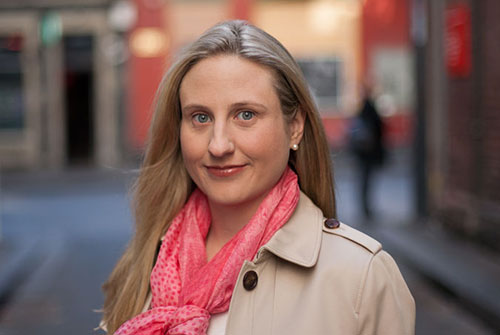Prices slip, RBA mulls rates


• RBA’s interest rate decision for June live on TND at 2.30pm
The tough federal budget delivered last month has knocked the wind out of house prices and consumer confidence, giving the Reserve Bank of Australia even less reason to consider moving interest rates higher when it meets on Tuesday.
Treasurer Joe Hockey’s proposed cutbacks to higher education, healthcare and welfare appear to be dragging on the residential property market, with the RP Data-Rismark monthly index showing that average dwelling prices dropped 1.9 per cent across the nation’s capital cities in May, its largest monthly fall since December 2008.
Melbourne – previously one of the strongest-performing capital cities – recorded the biggest decline with a fall of 3.6 per cent. Darwin and Canberra alone bucked the national trend with increases of one per cent and 0.1 per cent respectively.
… the federal budget caused people to pause and take stock
CommSec economist Craig James said that the federal budget may have acted as a catalyst for the sudden pause in house price growth after 12 months of consistent growth.
“Home prices couldn’t lift forever,” he said.
“At some point, there had to be a correction and it seems the federal budget caused people to pause and take stock.”
News of the sharp halt to house price growth over the past year came as Australian Bureau of Statistics data revealed that residential building approvals posted a surprise 5.6 per cent fall in April, bucking economists’ expectations for an increase of about 2 per cent.
ANZ senior economist Justin Fabo said that the result was still disappointing, despite the fact that building approvals data tended to be volatile.
“Most of the fall was in apartments, but even approvals for standalone houses have softened,” he said.
“We’ve still got a lot in the pipeline in terms of construction activity, but the approvals numbers are saying that at some stage, the growth in that construction activity is likely to slow up unless approvals start to pick up again.
“The question is how much it slows.”
The latest negative economic data comes after the Westpac-Melbourne Institute Index of Consumer Sentiment plunged 6.8 per cent to its lowest level since August, 2011, following the federal budget’s wide-ranging cuts to public spending.
The softening in consumer confidence, house prices and residential building approvals strengthens the case for the Reserve Bank of Australia to keep interest rates on hold at an historic low of 2.5 per cent in the coming months.
The RBA has signalled that it will leave the official cash rate on hold for the tenth month in a row when the board holds its monthly meeting this morning, amid signs that the low cost of borrowing is providing some resilience to the weak national economy.
The difficult balancing act facing the central bank, however, is highlighted by growing inflationary pressures, a strengthening manufacturing sector and figures indicating that business confidence outside the resources sector is at its highest level since the GFC.
The TD Securities – Melbourne Institute Inflation Gauge showed that the cost of living rose 0.3 per cent last month. At the same time, Australian Industry Group’s Performance of Manufacturing Index rose 4.4 points of 49.2, just below the 50-point level that separate growth from contraction.
Most of the fall was in apartments, but even approvals for standalone houses have softened
The figures provide more evidence of “green shoots” for those commentators predicting a pick-up in the national economy, after ABS figures showed that business confidence in non-mining industries is at its best in many years.
HSBC economist Paul Bloxham forecast that the RBA would increase the cash rate in the last quarter of calendar 2014, then continue to ratchet up the cost of borrowing to 3.5 per cent by the end of next year.
The significant fall in consumer confidence after the “horror” federal budget on May 13 was temporary, he said.
With AAP, ABC








